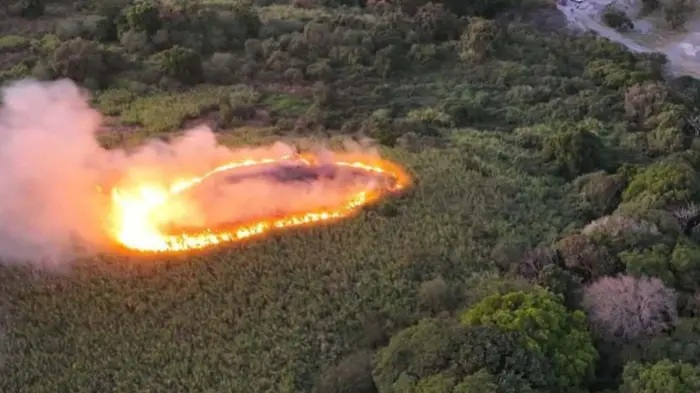WHAT THE PAPERS SAY: Syria, a dangerous intervention

CAMERON and Hague [UK Prime Minister and Foreign Secretary] are 'itching to have crack at Assad' but intervention will be 'dangerous' writes Crispin Black in The Week, Tuesday August 27.
CURIOUSLY, David Cameron and William Hague have chosen to make the case for military intervention in Syria based on intelligence.
Speaking to the BBC yesterday the foreign secretary said: “I know some people in the world would like to say this is some kind of conspiracy brought about by the opposition in Syria – I think the chances of that are vanishingly small. So we do believe this is a chemical attack by the Assad regime on a large scale.”
Let's hope the phrase 'vanishingly small' does not enter the language in the same way as 'It's a slam dunk, Mr President'.
It's no secret that Cameron and Hague have been itching to have a crack at Assad. Forgive my weary cynicism, but it's no surprise then that 'intelligence' seems now to support the case for intervention. The John Scarlett rule of intelligence – put together the intelligence the prime minister wants to hear and you will get promoted – is clearly alive and well in Whitehall.
Even if Assad has used nerve gas on his own people I fail to understand why gassing a thousand people is somehow more wicked than killing 50,000 with Kalashnikovs and artillery. It's the killing of civilians that is wrong – not how they are killed.
One of the more depressing aspects of how the Syrian tragedy is being covered in the media is the suggestion by some interventionists that they 'care' more about the innocent Syrian dead than those like me who think intervening in this charnel house is madness. How much we care isn't the issue. Appalled compassion and sadness at the photographs from Damascus of the dead in their shrouds was a universal reaction. The issue is what the hell can we do about it?
'Professional politicians' – men and women without experience or maturity, who go into politics directly from university, disfigure our national political life. Many are clearly driven by their own egos and passing emotions. They are adept at calculating their own interests but seem incapable of understanding the concept of the national interest. Blair and Cameron are of this type. Between them they have designed a new type of warfare – professional politicians' wars. That is military action with no carefully considered aim or purpose except to make the politicians feel good or important or at the centre of events.
Getting involved in Syria will be dangerous. The most likely replacement for the Assad regime, if it goes under, would be some form of Islamist extremist dictatorship. But there are geopolitical risks as well. The Syrian drama does not exist in a vacuum – the Assad government has the backing of Putin's Russia which is asserting itself on the world stage in the strongest manner since the disintegration of the Soviet Union. We must also consider Iran which is rapidly emerging as a regional power now that its traditional rival Iraq has been Balkanised as a result of a botched Western military intervention. Does David Cameron really understand what he is getting us into?
And what after all is the aim? We should be in no doubt if this military action goes ahead – Royal Navy submarines launching cruise missiles, RAF planes attacking Syrian government installations and UK Special Forces on the ground – we will not only be taking action against a ghastly and odious regime but also acting in direct support of Islamist extremists, including those who have declared their allegiance to al-Qaeda.
Cameron may or may not recall parliament – let's hope he does so. The fact that he hasn't already shows his breathtaking arrogance. But I have little doubt that after winding itself into an orgy of moral indignation it will rubber-stamp the plans. Parliament is full of professional politicians. In any case, even if MPs voted against military action it would not be binding. Under the rules of our non-constitution Cameron can do what he likes using the Ruritanian-sounding 'Royal Prerogative'.
I doubt there is much support for any kind of military intervention outside a tiny political elite. How do the British people bring this perpetual warmongering to an end? What instrument can we use? What does democracy mean when the will of the people on something as important as the use of armed force abroad is routinely ignored? •





